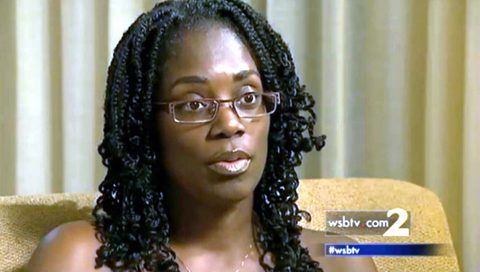The headlines are alarming: “Catholic-Owned Company Wins Religious Freedom Court Decision,” “Death Toll Rises to 65 in Boko Haram Attack on Students,” “Little Sisters Catholic Charity Victimized By Obamacare,” “Christians Sought Out, Murdered in the Kenyan Mall Massacre,” “Judicial Watch Seeks Reason Why ‘So Help Me God’ Removed From U.S. Air Force Oath.”

But the media seems to yawn in disinterest. Why? Are all these claims of growing discrimination against Christians just so much whining?
“Christians in the Middle East and Africa are being slaughtered, tortured, raped, kidnapped, beheaded, and forced to flee the birthplace of Christianity. One would think this horror might be consuming the pulpits and pews of American churches. Not so. The silence has been nearly deafening,” writes Kirsten Powers on the liberal internet news site the Daily Beast.

In the United States,“It is clear,” claim the editors of the arch-conservative Religious Freedom Coalition, that the Obama Administration is allowing an “all-out war to be waged against religious liberty within the U.S. armed forces.” Christians are being “threatened with the loss of their careers if they dare speak out” against policies such as the recent removal of the words “so help me God” from the official Air Force oath.
Lt. General William Boykin was forced to retire from his post as Deputy Undersecretary of Defense after a Los Angeles Times reporter recorded him testifying of his Christian faith in churches in Oklahoma and Texas. Navy chaplain Gordon Klingenschmitt was forced to resign after he refused to quit praying in the name of Jesus.
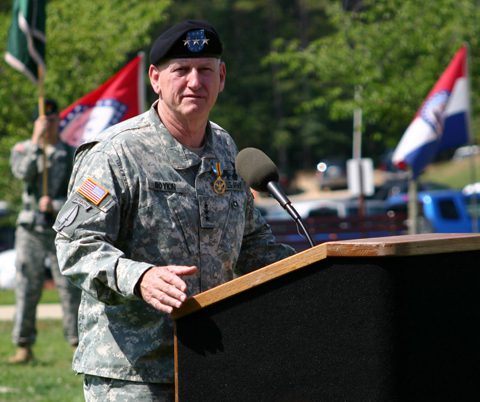
A federal judge ordered the U.S. Department of Veterans Affairs to stop banning prayer and forbidding the use of the word “God” at America’s national cemeteries, according to Houston TV station KHOU. “The legal battle started in Houston when Arleen Ocashio, director of the Houston National Cemetery, told Pastor Scott Rainey that he could no longer pray “in Jesus’ name” at Memorial Day ceremonies. The Christian advocacy group Liberty Institute obtained an emergency restraining order from Judge Lynn Hughes allowing Pastor Rainey to pray. However, the legal battle continues — with American Legion and Veterans of Foreign Wars volunteers being ordered to drop all references to God in their graveside services.
“Walter Reed National Military Medical Center is backpedalling after issuing an order banning family members from bringing Bibles and other religious items to injured soldiers,” reports the British newspaper the Daily Mail.
“In a memo on visitor and patient policy, one section said: “No religious items (i.e. Bibles, reading material, and/or artifacts) are allowed to be given away or used during a visit.” It was issued by Colonel Norvell Coots, the commander at Walter Reed, who told the press that the directive was meant to “preserve people’s religious rights.” After being confronted by members of Congress, Coots rescinded the order, saying it was “incorrectly written.”
Has the Air Force oath, indeed, been altered to not mention God? The liberal Huntington Post says the Air Force is bowing to atheist demands — by making the words “so help me God” optional. Judicial Watch has filed a Freedom of Information Act lawsuit demanding Obama administration records “regarding the decision.”
Is there really an attack on faith in America’s military?
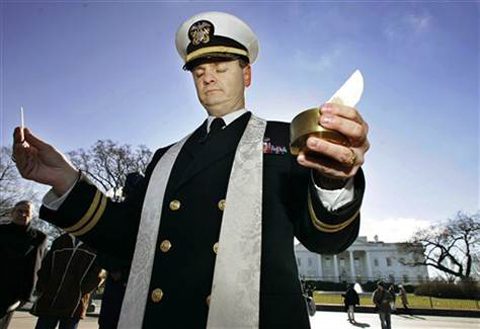
Klingenschmitt says chaplains have been told they “will be charged with sedition and treason for opposing the Obama administration” by preaching against homosexuality, mandated birth control coverage or the sanctity of life. “Can you believe this?” asks Klingenschmitt. “They are actually threatening chaplains with court-martial if they dare to preach.”In Egypt, Coptic Christians are facing the worst attacks on the Christian minority since the 14th century and “the bad news for Christians in the region keeps coming,” reports Powers.
A local government official in central Bangladesh backed by a mob of 1,000 Muslims recently halted the construction of a church building, herded the small Christian congregation to city hall and threatened them with exile from their homes unless they renounced Jesus, according to World Watch Monitor.
Construction at “the Tangail Evangelical Holiness Church in Bilbathuagani village was started by a group of about 25 Christians who had been meeting secretly for three years.” However, local Muslim clerics spread word that the Christians had begun work on their church building. Local council chairman Rafiqul Islam Faruk escorted the Christians to his office. More than 1,000 Muslims waited outside, following an announcement at all local mosques to gather at the chairman’s office.
“The chairman and the imams of the mosques interrogated me for accepting Christianity,” Mokrom Ali, 32, told World Watch Monitor. “They asked me why I had become a Christian. It is a great sin to become a Christian from Islam. If I did not accept Islam, they would beat me, burn my house, and evict me from the society. Their threats chilled me to the bone. That is why I pretended to accept Islam, but faith in Christ is the wellspring of my life. Now I am no longer a Muslim; I am a Christian.”
In the city of Peshawar, Pakistan, Taliban suicide bombers recently killed at least 85 worshippers at All Saints’ Church, which has been a local landmark since 1883.
Although the news media downplayed any religious angle, Christians were the target of the vicious attack on a shopping center in Nairobi, Kenya, that killed more than 70 people. The Associated Press reported the Somali Islamic militant group al-Shabab “confirmed witness accounts that gunmen separated” Christians from other shoppers – and tortured them by gouging out eyes and slicing off fingers before killing them.

In war-torn Syria, “Christians are under attack by Islamist rebels and fear extinction,” reports Agence France Presse. “This month, rebels overran the historic Christian town of Maalula, where many of its inhabitants speak Aramaic, the language of Jesus,” writes Powers. “The AFP reported that a resident of Maalula called her fiancé’s cell and was told by member of the Free Syrian Army that they gave him a chance to convert to Islam and he refused. So they slit his throat.”
Two-thirds of Iraq’s Christians have vanished from the country, reports Nina Shea, an international human-rights lawyer, in testimony before Congress regarding the fate of Iraqi Christians after the fall of Saddam Hussein. Thousands “have either been murdered or fled in fear for their lives,” Shea told Congress.
 “On a single day in July 2009, seven churches were bombed in Baghdad. The archbishop of Mosul was kidnapped and killed. A bus convoy of Christian students was violently assaulted.” Christians “have been raped, tortured, kidnapped, beheaded, and evicted from their homes.” “two-thirds of whom have vanished from the country.”
“On a single day in July 2009, seven churches were bombed in Baghdad. The archbishop of Mosul was kidnapped and killed. A bus convoy of Christian students was violently assaulted.” Christians “have been raped, tortured, kidnapped, beheaded, and evicted from their homes.” “two-thirds of whom have vanished from the country.”
It’s not just Christians, either. Over 850,000 Jews have been expelled from Muslim countries over the last 50 years, writes Lela Gilbert, author of the book Saturday People, Sunday People. The title of her book comes from an Islamist slogan, “First the Saturday People, then the Sunday People,” which means “first we kill the Jews, then we kill the Christians.”

Gilbert wrote recently that her Jewish friends and neighbors in Israel “are shocked but not entirely surprised” by the attacks on Christians in the Middle East. “They are rather puzzled, however, by what appears to be a lack of anxiety, action, or advocacy on the part of Western Christians” and the disinterest of the media.
“It’s no surprise that Jews seem to understand the gravity of the situation the best,” notes Powers in the Daily Beast. “In December 2011, Britain’s chief rabbi, Lord Jonathan Sacks, addressed Parliament saying, ‘I have followed the fate of Christians in the Middle East for years, appalled at what is happening, surprised and distressed that it is not more widely known.
“‘It was Martin Luther King who said, In the end, we will remember not the words of our enemies, but the silence of our friends,’” said Sacks. “That is why I felt I could not be silent today.’”
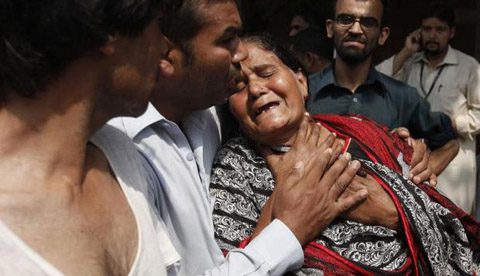 “The majority of Americans are Christians,” but when they are discriminated in America’s government-funded public schools or by the nation’s politicians, writes John Hawkins on the conservative site Townhall, Christians seldom fight back. That’s a big mistake, he says, because what is happening elsewhere is headed here – unless American Christians push back, he says.
“The majority of Americans are Christians,” but when they are discriminated in America’s government-funded public schools or by the nation’s politicians, writes John Hawkins on the conservative site Townhall, Christians seldom fight back. That’s a big mistake, he says, because what is happening elsewhere is headed here – unless American Christians push back, he says.
“The habitual wimpiness of so many Christians is particularly grating because when Christians shine a spotlight on these attacks and say, ‘That’s enough,’ more often than not we win.
“So, if Christians across the country were consistently willing to speak out and take action, you’d be surprised at how quickly our culture would begin to change.”

For example, he tells how over the past 31 years, a Christian ministry has been providing food to the hungry in Lake City, Florida. “But all that changed when they said a state government worker showed up to negotiate a new contract.” A state agriculture department official “told them they would not be allowed to receive USDA food unless they removed portraits of Christ, the Ten Commandments, a banner that read ‘Jesus is Lord’ and stopping giving Bibles to the needy.
“When the government tells the Christian Service Center it has to give up on Christ or quit using USDA food to help the poor, that’s religious discrimination. But that’s just an isolated instance, right?”

Not according to the Billy Graham Evangelistic Association. Franklin Graham told the liberal magazine Politico that the IRS targeted them – not auditing their books or tax returns – instead, conducting a “review” of their activities. “With the IRS admitting it gave extra scrutiny to conservative political organizations, Graham says he now believes that the review was part of an Obama administration effort of “targeting and attempting to intimidate us,” writes Politico’s Reed J. Epstein. The IRS review came after Graham urged voters to back “candidates who base their decisions on biblical principles and support the nation of Israel.”
“While these audits not only wasted taxpayer money, they wasted money contributed by donors for ministry purposes as we had to spend precious resources servicing the IRS agents in our offices,” Franklin Graham told Politico. “This is morally wrong and unethical – indeed some would call it ‘un-American.”
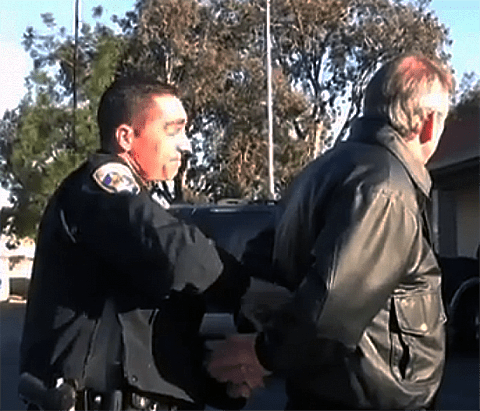
Meanwhile in California, two Christian street preachers had to fight in court for two years to be allowed to read the Bible aloud outside the Department of Motor Vehicles in Hemet, California.
Mark Mackey and Bret Coronado were arrested and charged with misdemeanor offenses for reading the Bible, but recently Superior Court Judge Timothy Freer found the men “not guilty” of any offenses.
“Interestingly,” writes Hawkins, “the judge also pointed out that the law prosecutors tried to invoke was likely unconstitutional as it gave law enforcement overbroad powers to quash public gatherings in the first place.
“Yes, there were actually Americans arrested for reading the Bible on public property.”
But they fought back – and won.
Is discrimination against Christians in the U.S. a real issue? “More than 25 percent of American workers say that discrimination against Christians has become as big a problem as discrimination against religious minorities,” reports Joyce Dubensky in the Daily Caller, writing about a new survey of over 2,000 American employees.
According to What American Workers Really Think About Religion from the Tanenbaum Center for Interreligious Understanding.
“In my work combating religious prejudice,” writes Dubensky, “I’ve heard many stories of how companies struggle with these issues. For example, in 2004, a Christian employee was fired for refusing to sign his company’s diversity policy. The policy required him to respect and value everyone’s differences. He explained to his managers that he would respect all of his colleagues regardless of their differences, but that he could not agree to value homosexuality or any religious belief other than Christianity. A judge sided with the fired employee, noting that the company had every right to expect him to behave respectfully at work – but it had no right to tell him what to value.
“Eradicating discrimination should be our vision,” says Dubensky.

But how? In Colorado, reports Hawkins, a husband and wife who own Masterpiece Cake Shop declined to make a cake for a gay wedding because it conflicted with their Christian beliefs.
“They learned that’s now illegal” in Colorado, writes Hawkins. “According to attorney Nicolle Martin, the owners could face a year in prison.”
Nevertheless, “we would close down the bakery before we compromised our beliefs,” one of the owners told the press.
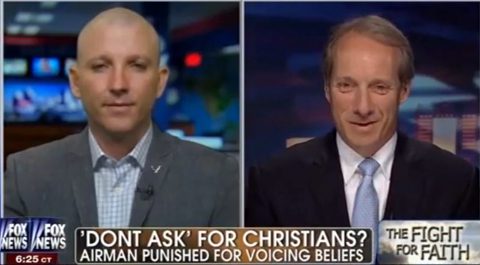
Taking such a stand may have ended the military career of Air Force Senior Master Sergeant Phillip Monk.
“He found himself at odds with his Lackland Air Force Base commander after he objected to her plans to severely punish an instructor who had expressed religious objections to homosexuality. During the conversation, his commander ordered him to share his personal views on homosexuality.
“‘I was relieved of my position because I don’t agree with my commander’s position on gay marriage,’ Sgt. Monk told Hawkins. “We’ve been told that if you publicly say that homosexuality is wrong, you are in violation of Air Force policy.”
After Monk was relieved of his duties, the Liberty Institute filed a religious discrimination complaint on his behalf.
The accusations against Monk are a court-martial offense in the Air Force – and it’s quite possible that the 19-year veteran with a spotless record could be booted out of the military because of his Christian beliefs. However, he’s fighting back.
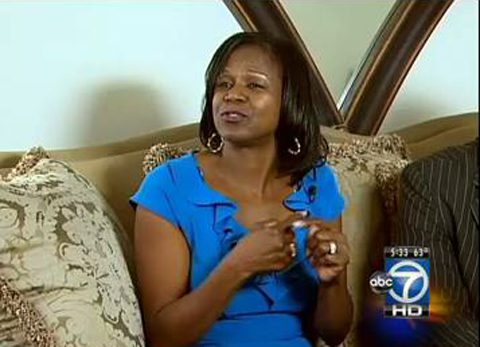
That’s what a Gallaudet University official did when she was suspended from her job for signing a petition at church. Angela McCaskill was placed on administrative leave after she signed a petition for a referendum on Maryland’s law that legalized same-sex marriage.
Now her suit, filed in the U.S. District Court for the District of Columbia, says the school violated anti-discrimination provisions of the D.C. Human Rights Act.
“She was basically disciplined on the job and demoted based on something she did at church,” her attorney J. Wyndal Gordon told CitizenLink.
According to her lawsuit, McCaskill was demoted when the school eventually reinstated her. Her complaint alleges she went from Deputy to the President and Associate Provost for Diversity and Inclusion, to just Chief Diversity Officer. It also says she was ordered to no longer report to the Provost.
McCaskill was one of 160,000 Maryland residents who signed the petition, spearheaded by the Maryland Marriage Alliance. Located in the District of Columbia, Gallaudet University specializes in educating deaf and hard-of-hearing students. McCaskill was the first African-American woman to earn a doctorate from the university. She has worked at the school for 23 years in various capacities.
“The university certainly made the right decision to reinstate her,” David J. Hacker, legal counsel for the Alliance Defending Freedom, told CitizenLink. “But it’s troubling that a university of this prestige placed her on an administrative leave for participating in constitutionally protected speech.” And, he said, it’s unacceptable that she was demoted.
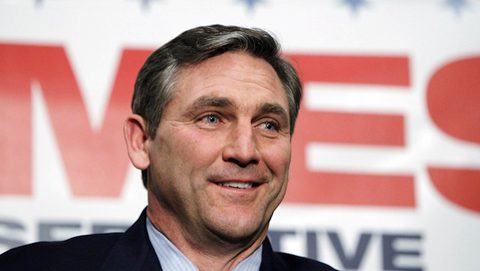
It was that same Constitutionally protected speech that got former ESPN Broadcaster and one-time NFL player for the New England Patriots, Craig James, fired. He told Leonardo Blair at the Christian Post that he was “shocked” after Fox Sports Southwest canned him for publicly declaring his Christian views opposing marriage.
“I was shocked that my personal religious beliefs were not only the reason for Fox Sports firing me, but I was completely floored when I read stories quoting Fox Sports representatives essentially saying that people of faith are banned from working at Fox Sports,” James told Breitbart News. “That is not right and surely someone made a terrible mistake.”
“In an announcement on Aug. 30, 2013, that has since been removed,” Blair reported. “Fox Sports Southwest stated that James would be joining its Fox College Saturday studio team rounded out by Erin Hartigan and Ex-NFL quarterback Tony Banks.”
“We’re excited to add Craig to the FOX Sports Southwest team,” executive producer Mike Anastassiou noted in that announcement. “He’s a talented broadcaster who I’ve admired throughout his career. His knowledge of college football and the experience he brings as an analyst will be a tremendous asset to our coverage.”
However, “a day after his first appearance on air,” reported Blair, “Fox Sports Southwest’s general manager Jon Heidtke who had hired him, told James he had been fired. Top officials at Fox Sports, he said, were informed about comments James made about same-sex marriage during his failed bid for a seat in the U.S. Senate in 2012 and were uncomfortable.”
In a televised debate, James answered that be believes homosexuality is a choice and those who violate biblical principles will have to answer to God.
“I think it’s a choice, I do,” said James in response to a question during the debate. “I think that you have to make that choice. But in that case right there, they are going to have to answer to the Lord for their actions.”
James’ legal counsel from the Liberty Institute has demanded that he be reinstated or Fox will face legal action.
James is fighting back – as did a church when told it needed a permit to hold baptisms in a national park. Alarmed members contacted Congressman Jason Smith (R-Missouri), who confronted the National Park Service asking what was going on.
It seems that under the Obama administration, “the Park Service recently began a new policy requiring churches that wished to hold baptisms in public waters to apply for a special permit at least 48 hours in advance of the baptism, reports Hawkins. “The Park Service justified this recent demand by saying that the permits were necessary to ‘maintain park natural/cultural resources and quality visitor experiences, specific terms and conditions have been established.’

“Between citizen outrage and Rep. Smith’s threat to bring the matter before the full Congress, the Park Service quickly reversed its new policy,” reports Hawkins. Bureaucrats in the National Park Service wrote to the Congressman that, ‘As of today, the park’s policy has been clarified to state that no permit will be required for baptisms.’”
Fighting back also worked when Florida Atlantic University student Ryan Rotela was told by a professor to write Jesus Christ’s name on a piece of paper and stomp on it.
Rotela defiantly refused and in retaliation, a formal disciplinary action was started against him.
“But, before the system could roll over Rotela, a funny thing happened,” writes Hawkins. “The word about what was happening to him got out, Christians became outraged, and suddenly the university’s tune quickly changed. FAU’s Senior Vice President for Student Affairs, Dr. Charles Brown, has since issued a groveling formal apology. Next thing you know, the disciplinary action was waved off following a withering public response that included complaints from the Governor of Florida, Rick Scott.”
All of these instances demonstrate that Christians have to push back, says Hawkins.
“Had Christians not risen up, the student who refused to stomp on Jesus would have been the one punished while the professor would have paid no price at all. If there’s a lesson here, it’s that when Christians refuse to back down, we usually win. What that means is if enough Christians stand up for our faith, you’ll be surprised how fast the people in power lose their nerve about going after us.”
In Nigeria — an African nation that is officially 50 percent Christian, 50 percent Muslim, violence against Christians has resulted in the declaration of a state of emergency in three northern states. An extremist group called Boko Haram has killed least 10 Christians, including a youth leader in Maiduguri and a medical student, a pastor and his son in Yobe. Their church was burned to the ground. One eye witness of Sunday’s attack in Yobe told Reuters, “They started gathering students into groups outside, and then they opened fire and killed one group and then moved onto the next group and killed them. It was so terrible.”
In South America, Father Bernardo Echeverry, 62, and Father Hector Fabio Cabrera, 35, who ministered in San Sebastian Roman Catholic parish, Roldanillo village, Valle department, Colombia, were found murdered after confronting drug cartel leaders. Neighbors reported to police two men running from the parish shortly before the priests’ bodies were found in the church rectory. In Medellín, disabled priest Luis Javier Sarrázola Úsuga was found dead, stabbed in the chest more than 30 times. He had operated a charity called Educational Foundation for Peace and Social Freedom, which served the poor in Medellín’s Carambolas neighborhood. Open Doors says that in the last year eight priests have been killed.

So, why doesn’t this make the CBS Evening News, ABC World News Tonight, NBC’s Today Show or even the Fox News 24-hour news cycle?Americans’ silence about the worldwide persecuted church “is inexplicable,” writes Powers in Politico. “American Christians are quite able to organize around issues that concern them. Yet religious persecution appears not to have grabbed their attention.
The recent bloody attack by terrorists on a mall in Nairobi, Kenya is only a glimpse at the worldwide problem, reports the Religious Freedom Coalition.
“During the four-day hostage stand-off by Somali al-Shabaab terrorists, these monsters raped, tortured, beheaded, dismembered, castrated, gouged out eyes, amputated fingers and hung hostages on hooks from the roof” after finding out that they were Christians.
So, “why aren’t Western Jesus-followers more aware or engaged on this issue?” asks Jonathan Merritt, author of A Faith of Our Own: Following Jesus Beyond the Culture Wars.

One reason, he says is that “Christian persecution is under-reported by the media. Paul Marshall of the Hudson Institute says that persecution, if you include discrimination, is affecting approximately 600 to 700 million Christians globally.
“According to a 2011 Pew Forum study, Christianity is the most persecuted religion in the world with followers of the faith being actively harassed in 130 countries.”

“If a population of half a billion people is so blatantly oppressed,” asks Merritt. “It’s difficult to understand why it isn’t making much news. The answer, in my opinion, is the location where much of the persecution occurs: the Middle East.
“Many journalists I speak with seem timid to delve too deeply into the topic or to report on it too often for fear of being perceived as Islamaphobes or outright racists.”
“I agree with The Atlantic’s Jeffrey Goldberg,” writes Merritt, “who remarked in USA Today that the persecution of Christians in the Middle East is ‘one of the most undercovered stories in international news.
“People can’t advocate for issues they aren’t aware of,” notes Merritt, “and to borrow from the Apostle Paul in Romans 10:14, “how will they hear if no one tells them?”

But the media is not alone in the guilt of silence. American church leaders seem to want to look the other way, too, says Merritt.
“A 2010 LifeWay Research survey reported that 79 percent of churches said the flailing economy had negatively impacted their congregation,” writes Merritt. “During recessions, churches often turn inward, not outward. When this happens, congregations disconnect from international communities where they previously maintained partnerships and subsequently grow less aware of the problems facing the global church.
“It’s not that they don’t care, but rather that they don’t know or perhaps they do know but are so focused on ‘more important’ initiatives that they can’t muster the energy to address them.”
“Why isn’t the mammoth Christian community of the world’s most influential nation in a tizzy over the persecution of Christians in the Middle East and around the world?” asks Merritt. “The answer, it seems, is that many of their attentions have been focused elsewhere.”

Merritt says it’s no excuse for inaction. “Isn’t it time that American Christians reinvest their energies in addressing the actual persecution of their brothers and sisters happening outside their borders?”
While the American church looks the other way, the five countries that make up Central Asia – Uzbekistan, Tajikistan, Kyrgyzstan, Turkmenistan, and Kazakhstan— “all have recent reports of repressing religious freedom. They do not allow any religious activity unless it has government approval and persecute anyone who violates their laws. Their most popular method is fining people sums that are very difficult to pay and torture victims to prove their power,” reports International Christian Concern.
“Christians in Columbia are facing heavy and violent persecution for their beliefs, regardless of the country’s official position on religious freedom,” reports Open Doors USA. “The National Liberation Army persecutes Christians because their beliefs are not compatible with the rebel cause. Christians are being demanded to leave their homes, and even killed. Many of the attacks involve causing trauma to Christian children, such as kidnapping and murdering parents in front of them.”
“Across rural areas of Laos reports are coming in of Christian communities being pressured to give up their new found faith in Christ,” reports Asia Watch. “Those who refuse are threatened with forced eviction from their homes. Animism, or the worship of the natural world, is a traditional belief system for many villages in Laos.”
Why is none of this mentioned in American pulpits? Why is the news media silent?
“Imagine if correspondents in late 1944 had reported the Battle of the Bulge, but without explaining that it was a turning point in the second world war,” writes John L. Allen in the Spectator magazine. “Or what if finance reporters had told the story of the AIG meltdown in 2008 without adding that it raised questions about derivatives and sub-prime mortgages that could augur a vast financial implosion?

“Most people would say that journalists had failed to provide the proper context to understand the news. Yet that’s routinely what media outlets do when it comes to outbreaks of anti-Christian persecution around the world, which is why the global war on Christians remains the greatest story never told of the early 21st century.”
In 2011, the Catholic Patriarch of Jerusalem, Fouad Twal, who leads a church with more than its fair share of new martyrs, phrased the same questions more plaintively during a conference in London. He bluntly asked: ‘Does anybody hear our cry? How many atrocities must we endure before somebody, somewhere, comes to our aid?’

